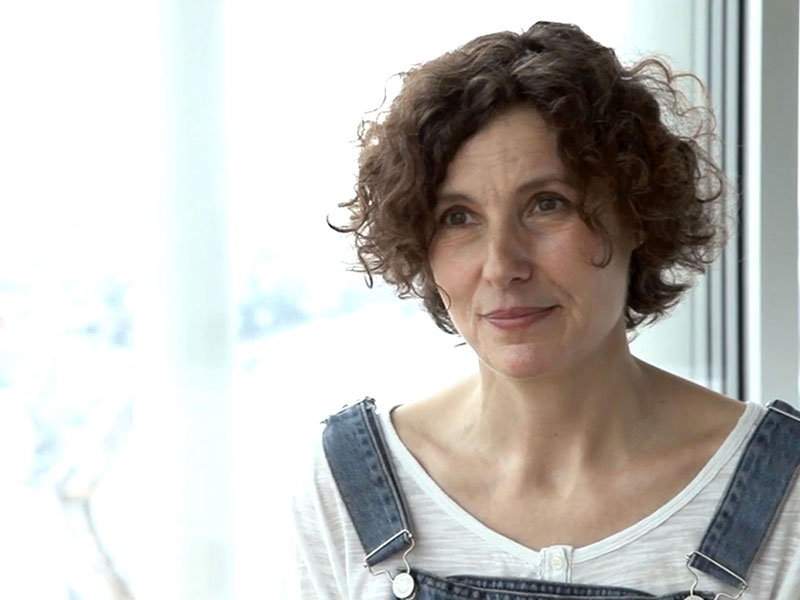
An edited version of this article first appeared in Pharmaphorum“You’re mad. Don’t do it. Please. Look what happened to those people testing that drug last year.”
It was September 2007. I was sitting with a friend going through a large wad of papers detailing the outset of the human study of fingolimod, a new drug for MS. The trial (at Northwick Park Hospital) for an autoimmune disease treatment had gone spectacularly wrong in March 2006.
Fingolimod is an immune-modulating drug and the trial was a double-blind to test its efficacy against a well-known beta interferon. If successful this compound would be the first ever pill for the treatment of relapsing-remitting MS and I was desperate to try it.
Unlike other trials there was no placebo, no danger I wouldn’t get any treatment. I would get the tried and tested drug (administered by injection) or test the untried treatment. I would have to take a pill and have an injection. ‘Double blind’ means that neither I nor the doctors running the trial would know which had the active ingredient. “Look” said my friend: “Here in black and white. Possible side effect: sudden-death.”
“Right, that’s it.” I replied. “Stop reading.”
I had been diagnosed with relapsing-remitting MS, in May 2007. My consultant neurologist Omar Malik had explained that I could try beta interferons – which had to be injected into muscle, didn’t work for everyone and could have flu-like side effects – or diet and yoga, which people reported as helpful. Or I could try and get onto a clinical trial, which might be my best hope of getting effective treatment early.
The diagnosis, which we kept from our daughter, was like a bomb dropping on our lives. We had started informing ourselves about the disease, learning that 70% of those diagnosed with relapsing remitting MS go on to develop the aggressive secondary progressive form, where there is no remission, just the steady drip of disintegration.
The literature was depressing reading, heightened by the dry and inevitable ‘Janet and John Get MS’ tone of a lot of it. MS seemed so arbitrary and unpredictable, no aspect of my mind or body seemed safe. It could impact cognition, sleep, mobility, moods, speech: anything and everything. The re-iteration that MS is different for everyone was no comfort. We felt increasingly frightened and anxious.
And though when I asked Dr. Malik “How long before I need a wheelchair?” He’d replied that I may never need a wheelchair, the future was a place we no longer wished to visit. We knew that getting effective treatment early might help slow down the rate of relapse and stave off the onset of the aggressive form of the disease.
I’d trained as a musician, was playing saxophone in a band, making radio programmes and writing for a music magazine. But it was the thought of not being able to do things for my family that really hit home. At the time my daughter was just 8, my stepson was at university. My husband had and still has a pathological fear of illness and hospitals. The thought of any of them becoming my carer was abhorrent. I did not want anyone else to have to dress or feed me.
I determined to do everything I could to stay mobile. I liked and trusted Dr. Malik. I hate injections. I told him I’d welcome the chance to take part in a clinical trial. The Fingolimod trial was headed by his colleague Richard Nicholas at Charing Cross Hospital. And despite the list of side effects, in which sudden death was not the least appealing, I felt the medical care and consistent monitoring and support would help mitigate the anxiety felt by myself and my family. I owed it to myself and to them to do everything I could.
The value of being
The process of being accepted was in itself reassuring. The tests, the careful vetting. Aside from MS I was admitted because I was healthy enough in all other respects. And so I was plugged into an outstanding medical team as I embarked on what turned out to be a ten-year adventure on the trial through all its phases.
I discovered that it was beneficial in subtle yet powerful ways regardless of whether Fingolimod turned out to be effective or not. Being made to feel part of a team that was pushing back the boundaries of MS research meant feeling part of something important.
Instead of feeling that responsibility for my care and wellbeing had to be handed over to the adults working at the hospital – an infantilism that goes hand in hand with health issues – being on the trial was empowering. The team was very supportive, empathetic: good at communicating. I was spoken to and treated like an adult. I felt I had agency.
This helped when my certainties in life had crumbled along with my sense of self and self-esteem. We are taught to value ourselves through what we do and all of a sudden, here’s an unpredictable, degenerative disease that threatens your ability to do anything. Participating in the trial where my ‘simply being’ was valued I slowly realised that it’s in being, not in doing, where we must root our self-worth.
Lack of it, along with fear, anxiety, vulnerability and feelings of hopelessness have been shown to have a negative impact on the body at a cellular level, which in turn impacts negatively on long-term prognosis. And it’s because of this that clinical trial literature needs to change.
New language
At the outset, forms read by patients typically announce: ‘Trial drug X is for patients who have failed on drugs ABC…’ We already feel like failures, whether consciously or not: because we’re scared enough to risk ‘sudden death’, (which might benefit from being placed further down any list), and the literature confirms that sense of failure.
This doesn’t help any party interested in a positive outcome. It’s also wrong. We haven’t failed. The drugs have failed us. In the trial literature, for example, perhaps Drug X would work better for people “where ABC were not effective”.
I felt heard by the trial team. And this was important not least because the forms that I had to fill in about my experiences didn’t cater for them. They were black and white. Literally. Boxes to be ticked ‘Yes’ or ‘No’, when very often the answer was grey: ‘sometimes’. Adding this as an option would offer a more complete understanding.
Feeling understood underpinned the safety I felt on the trial and the sense of agency extended to an element of control over my condition. This was integral to my increasing wellbeing over the years. In this the trial nurse Caroline D’Arcy was crucial. She gave me perspective and confidence, helping me face down my fears: “A headache you say? Mm..Yes, I understand, a bad headache. It may not be a relapse Elizabeth, or optical neuritis as you suggest.. What were you doing last night? … I see… Have you taken any paracetamol? No? Well, try that and ring in an hour if it hasn’t gone away… Actually make that two…“ The realism and positive approach of the team has framed my journey with MS and ultimately reframed my outlook on life.
The hope that being on the trial gave me and my family facilitated the frequent hospital appointments and eased the impact of these on our life. The consistent monitoring and feedback, the honesty of the medical team and the trust that we had in them helped us all shore up anxiety about MS behind the dam walls of daily life.
Speaking against misconceptions
As the years passed and the trial rolled on and I felt better than I had when I was diagnosed, I became informed about the progress in treatments and effective management of MS, finding out as much as I could and meeting others with the condition. I was asked to speak at ECTRIMS and at medical conferences and to be an expert patient witness to the NICE committee considering fingolimod for the NHS.
Having experienced the benefits of taking a pill rather than weekly injections (which were painful and had horrible side effects) and finding that the pill was effective in my case, I was very aware of speaking up for people like me, who would benefit from this effective pain-free treatment.
Walking into the room with its large horseshoe table – a whiteboard at the open end and microphones at every place it reminded me of footage of meetings at the UN.
We were all allocated a time to speak. But the woman chairing the meeting was considerate when I became dismayed at the complete lack of understanding of the severity and implications of the condition by some of those explaining it. A man stood up and wrote on the white board, announcing “People with MS might experience impaired gait.” I buzzed. “People with MS might experience total paralysis and be unable to do anything for themselves, be unable to speak and have difficulty breathing.”
The man’s lack of understanding is fairly typical of the lack of public awareness about MS, the symptoms of which can often be invisible to others, or ascribed to something else, as dizziness and fatigue for example might be taken for drunkenness or laziness. And as the presenting symptoms are myriad, an equal lack of awareness amongst GPs means it is often not diagnosed when early intervention is crucial to a better long-term prognosis.
I was concerned that the cost of not making the treatment available was not being considered by the committee. Most people are diagnosed between the ages of 20-40, they have decades of active work ahead of them. Taking a pill that keeps you mobile, able to work, feeling positive, has a concomitant positive impact on long-term prognosis. You are able to contribute to society, pay taxes, and your family is free to do so too.
The lack of understanding about MS extends to the workplace too. It’s why many people with it do not speak out about it for fear of losing or not getting work. Yet incidence of the disease and autoimmune conditions in general is on the rise across the globe, including in populations where it was previously unknown.
The clinical trial finished July 2017. Fingolimod proved to be more effective than the existing medication at reducing rate of relapse and was rolled out onto the NHS as a second line treatment. I wish it was available as a first line therapy. I had been on the active ingredient for 9 years, after an awful first year when the active ingredient was the beta interferon.
Life got better for me and although I was given the opportunity to continue on the treatment, I wanted a break from medication. I’ve since really focused on trying to manage my MS with nutrition, exercise, and lifestyle changes. Now there are many more treatment options, including therapies that target the more aggressive forms of the disease for the first time.
My last scan in 2019 showed that the lesions in my brain have disappeared.
Dr. Malik explained my MS is “quiescent”. I am doing what I can to keep it that way. That I can is down to the positive experience on the clinical trial, the sense of support and optimism and the research and realisations to which it led me. As Caroline D’Arcy said. “You’ve got one life, Elizabeth, Live it!” Being on the clinical trial has enabled me to do just that, in some ways better than before.
Taking part in a clinical trial might be the best hope of getting effective treatment.
MS patient Elizabeth Kinder writes about why she participated in a clinical trial – and why the language needs to change.
